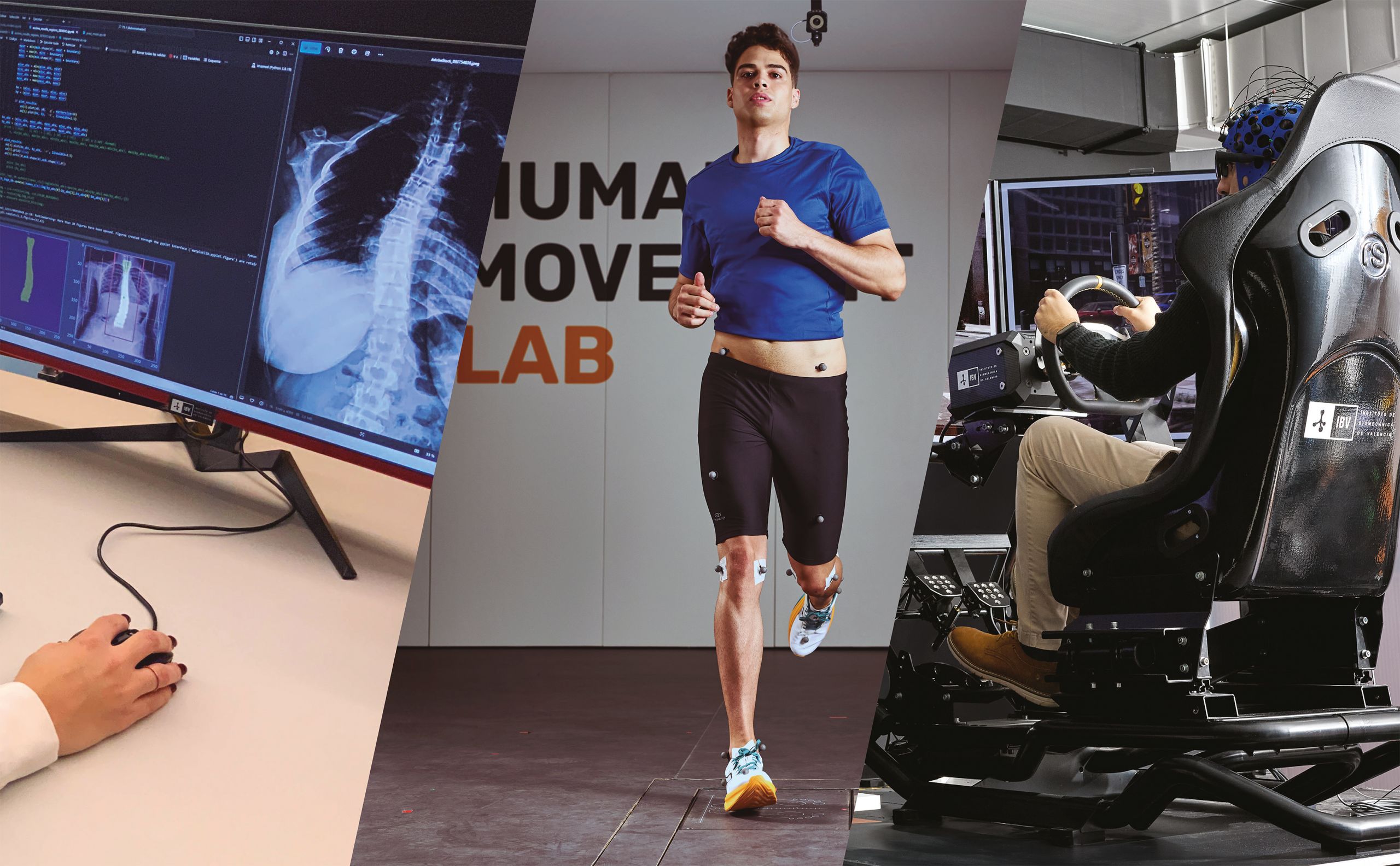
The IBV increased its economic and social impact in 2024, generating a social return on investment of 14.48 euros for every euro invested
In its recently published 2024 annual report, the Instituto de Biomecánica (IBV) highlights the growing economic and social impact of its work as a generator of differential value for people’s health and well-being, business competitiveness and sustainability. According to the IBV’s managing director, Javier Sánchez, “Every euro invested in the IBV has generated 11.3 euros in sales and 14.48 euros in social return on investment, reinforcing our position as a key player in Valencia’s economy”.
The impact made by the Institute also extends to employment: according to a study by the IVIE, 109 jobs were created for every million euros invested. “These figures demonstrate the extent to which REDIT’s technology institutes, and the IBV in particular, are a driving force within the Valencian innovation ecosystem. They also highlight their and our ability to transfer value to our community’s industrial and public sectors and indeed to society at large,” Sánchez explained.
In 2024, the IBV undertook over 300 R&D and innovation projects, generating a turnover of around 12 million euros, sustaining activities in all its strategic areas, and increasing its standing both in Spain and abroad. The Institute has a strong presence in sectors such as health, mobility and smart cities, defence, sports, clothing and footwear, and occupational health and well-being, among others. According to the IBV’s managing director, “During the course of the year, we have increased the transfer of technology from our functional assessment laboratories and our solutions for analysing ergonomic risks. We have also promoted the rollout of MOVE4D, our dynamic human body scanning technology that sets the global standard, and we have enhanced our technology services in emerging fields such as personalised medicine, defence and sustainable and intelligent mobility, among others, as well as in traditional sectors such as footwear, clothing and occupational health and well-being”.
The IBV works alongside more than 1,000 clients, including institutions and public administrations. This enhances its role as a key player in the promotion of innovation and the transfer of knowledge and technologies to companies and the wider community. 28% of the Institute’s corporate clients are located in the Community of Valencia, 54% are based elsewhere in Spain, and 18% are international.
Sánchez goes on to say, “More than 1,000 clients have placed their trust in the IBV as an ally and agent that supports innovation and competitiveness, and it is worth noting that we increased our partner base by almost 10% last year”.
In terms of the IBV’s impact on society, one of its most outstanding achievements has been its inclusion in the Valencian Register of Socially Responsible Entities (REVSR), a recognition that highlights the Institute’s commitment to ethical and sustainable practices that align with the Sustainable Development Goals (SDGs).
“All these figures confirm that innovation aimed at creating differential value is a lever for transformation for companies, for people, and for the environment”, stresses Javier Sánchez. “In our work, our ongoing commitment is to create useful knowledge thanks to a model that combines scientific excellence, sustainability and the effective transfer of that knowledge to the productive sector”, he adds.
The IBV’s managing director emphasises the fact that “These results have largely been possible thanks to the support of the Autonomous Government of Valencia, through the IVACE+i, which has maintained its unwavering commitment to technology institutes in favour of companies and productive sectors in the Valencian Community.’
An international reputation for scientific and technical excellence
In 2024, the technology centre added to its already substantial list of distinctions when it was recognised as a FIFA Research Institute for Football Technology and Innovation – taking its place among a select group of institutions worldwide that work with FIFA on key projects that address challenges such as sustainability, the democratisation of technology and the development of global standards for football.
It has also reinforced its position as a reference centre in the healthcare sector by obtaining “accreditation for the design of medical devices for third parties according to the EN ISO 13485:2016 standard”, as well as “accreditation for its Functional Assessment Technologies under the European Medical Device Regulation (EU) 2017/745”.
The IBV has also once again increased the number of ENAC accreditations for its test laboratories, which support the country’s business and industrial sectors.
Finally, it is worth noting that the centre is continuing to address the challenges it is currently facing, which includes reinforcing its role as a national and international reference centre in the transfer of R+D+I and technology to improve people’s health, well-being and quality of life, adding progress and value to companies and to our social and economic fabric.
For full information on the activities and projects undertaken in 2024, please follow this link: https://www.ibv.org/anuario/Anuario2024/



